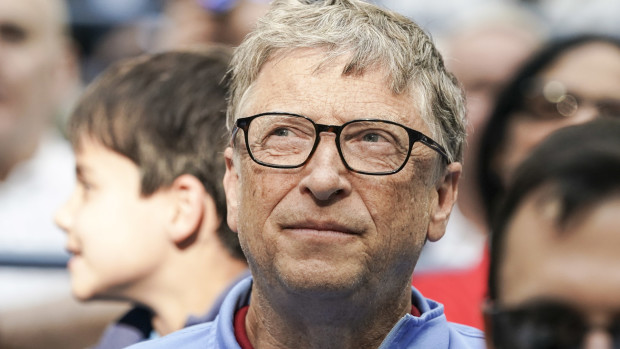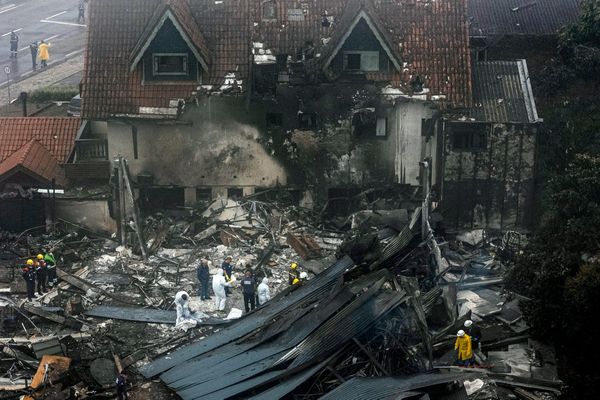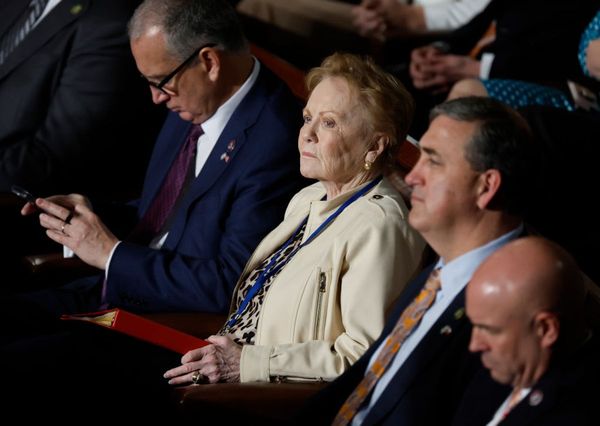
Ever since ChatGPT launched in November, the artificial intelligence debate has spilled out of the scientific community and into the public domain. Though AI has been around for a while, the chatbot made the technology both tangible and accessible, and even in these early days of the so-called AI revolution, this tech is already having a significant impact.
Much of the debate -- bolstered by incendiary statements from organizations like the Center for AI Safety in addition to OpenAI's CEO Sam Altman -- has centered around the big, existential question: can AI gain great-than-human intelligence, and subsequently end the world?
DON'T MISS: The Company Behind ChatGPT Is Now Facing a Massive Lawsuit
Some experts believe that this existential threat is actively playing out as the technology grows at an exponential rate. Many others, beyond believing that a superhuman AI will never be possible, are much more concerned with the current harms posed by AI.
Though he doesn't have an answer to the proposed extinction threat, Bill Gates is optimistic that "we can deal" with the risks posed by AI.
His reasoning? "We have done it before."
AI-Powered Deepfakes
One of the most significant concerns is the potential impact AI-generated deepfakes and misinformation could have on democratic elections. Seeking to highlight this risk, Senator Richard Blumenthal, D-Conn., opened a May Senate hearing on AI oversight with a fully AI-generated monologue.
Gates doesn't think the problem of misinformation is anywhere near a solution, but he remains hopeful that society can weather this particular challenge for two reasons.
The first is that, ever since the rise of email scams, people have begun to examine their content with a closer eye, learning "not to take everything at face value."
The second is that, just as AI can generate misinformation, AI can detect it.
"This will be a cyclical process: Someone finds a way to detect fakery, someone else figures out how to counter it, someone else develops counter-countermeasures, and so on," Gates wrote in a lengthy blog post. "It won’t be a perfect success, but we won’t be helpless either."
AI-Powered Attacks
Another current harm that has AI experts, like Dr. Gary Marcus, concerned involves the ways in which criminals can use these models to advance their agendas. AI, in the hands of cybercriminals, could mean enhanced phishing and online fraud, in addition to more powerful hackers.
But just as with the proliferation of AI-generated misinformation, Gates thinks that AI can be a tool governments can use to combat these AI-generated threats.
Online security teams, he said, can use AI to find the flaws in their systems and fix them before criminals can breach them.
And when it comes to a global AI arms race that could result in "increasingly dangerous cyber weapons," Gates pointed back in time to the nuclear nonproliferation regime, a successful effort to prevent the spread of nuclear warfare. A global agency similar to the International Atomic Energy Agency is Gates' solution to this particular threat.
AI Will Take Jobs
One of the most significant concerns when it comes to AI involves job loss. Already, AI has claimed around 4,000 jobs in May alone, a number that could continue to grow.
But Gates thinks that AI will mainly help people do their jobs with greater efficiency.
More Artificial Intelligence:
- Why ChatGPT Can't Turn Into Marvel Villain Ultron (Yet)
- Human Extinction From AI is Possible, Developers Warn
- Protesters Say OpenAI CEO Is Dangerously Misled When It Comes to AGI
"But it is true that some workers will need support and retraining as we make this transition into an AI-powered workplace," Gates said. "That’s a role for governments and businesses, and they’ll need to manage it well so that workers aren’t left behind."
The tech mogul thinks that the coming AI Age won't be "as dramatic as the Industrial Revolution." He likened it instead to the "introduction of the PC," saying that people will have to adapt, but they will be able to.
Marcus, however, has said before that the AI revolution will be different than past technological revolutions when it comes to jobs.
"I think in the long run, artificial general intelligence really will replace a large fraction of human jobs," he said at the May hearing. "What we have right now is just a small sampling of the AI that we will build."
DeepAI CEO Kevin Baragona shares Marcus' take. The computer scientist told The Street in June that "Anyone who says they know what happens because of this, I think is not to be trusted. There's never been a technical wave like this. You should not compare this to prior revolutions."
Gates went on to address biases inherent to AI models, as well as the risks of AI tools preventing students from learning how to write, saying that the solution to both issues is becoming "informed" users of the models.
He added that the way forward is paved through a thorough understanding of the technology, saying that governments need to become experts in AI in order to regulate it rationally, and that companies must pursue their work "safely and responsibly."
"It’s the most transformative innovation any of us will see in our lifetimes, and a healthy public debate will depend on everyone being knowledgeable about the technology, its benefits, and its risks," Gates said. "The benefits will be massive, and the best reason to believe that we can manage the risks is that we have done it before."







